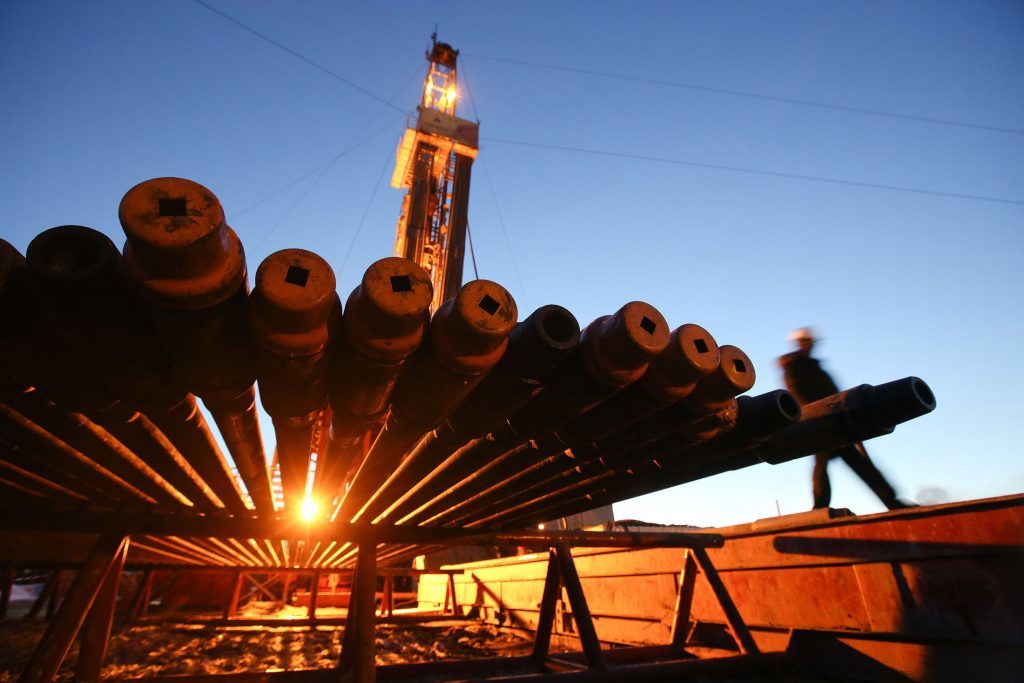
Iraqi Kurdish officials have said that federal forces and state-backed militias have launched a “major, multi-pronged” attack aimed at retaking the disputed northern city of Kirkuk.
The Kurdistan Region Security Council said in a statement that Kurdish forces known as peshmerga have destroyed at least five US-supplied Humvees being used by the state-sanctioned militias following the “unprovoked attack” south of the city.
Tensions have soared since the Kurds held a non-binding referendum last month in which they voted for independence from Iraq. The central government, along with neighbouring Turkey and Iran, rejected the vote.
The US has supplied and trained Iraqi federal forces and the peshmerga, both of which are fighting the Islamic State group.
The US also opposed the referendum, and has urged both sides to remain focused on defeating the extremists.
The central government and the autonomous Kurdish region in the north have long been divided over oil revenues and the fate of disputed territories like Kirkuk that are controlled by Kurdish forces but are outside their self-ruled region.
The Kurds assumed control of Kirkuk, in the heart of a major oil-producing region, in the summer of 2014, when IS militants swept across northern Iraq and the country’s armed forces crumbled. Baghdad has demanded the Kurds withdraw.
The Kurdish security council said the assault launched late Sunday was aimed at entering the city and retaking the K-1 military base and nearby oil fields.
State-run Al-Iraqiya TV had earlier reported that federal forces rolled into parts of the countryside outside Kirkuk without facing resistance. However, some residents of the city and an Iraqi militia commander reported shelling.
Al-Iraqiya carried a statement from Prime Minister Haider al-Abadi’s office saying he had ordered federal forces to “impose security in the city in cooperation with the inhabitants and the peshmerga,” indicating he was willing to share administration.
A commander of the local Kurdish police force said his forces remained in control of the province’s disputed oil wells. “There’s been no agreement to hand over the wells until now. As for the future, I don’t know,” said Bahja Ahmad Amin.
Inside Kirkuk, a multi-ethnic city that is home to more than one million people, residents shuttered themselves in homes and reported hearing sporadic booms they said sounded like shelling and rocket fire.
Iraq’s state-sanctioned militias, the mostly Shiite Arab Popular Mobilisation Forces, were ordered to stay out of the city, according to al-Abadi’s office, and instead keep positions in the countryside.
They are viewed with deep suspicion by Kurdish residents, who see them as beholden to Iran rather than Iraq’s central government. The predominantly Shiite militias are sponsored and guided by Tehran.
Baghdad has been turning the screws on the Kurdish region since the September referendum, pushing Kurd leaders to disavow the vote and accept shared administration over Kirkuk.
Iraq’s government barred international flights to and from the region and asked neighboring Turkey and Iran to close their borders. Iran closed its three official crossings with the Kurdish region Sunday, Kurdish media reported. It also froze currency transfers to four banks operating in the Kurdish region.
Al-Abadi has demanded shared administration over Kirkuk. His Cabinet said Sunday that fighters from Turkey’s Kurdish insurgency, the PKK, were beginning to appear in Kirkuk, and declared that would be tantamount to an act of war.